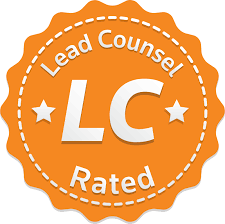Adoption
Adoptions
are extremely happy times for both the adoptive child and parent(s). When a child is adopted, the adoptive parent has opened his or her heart and home to the child. The Ohio adoption laws are extremely complex, and every adoption in the State of Ohio
must be approved by the probate
court. It is important for you to contact the adoption lawyers at the Law Offices of Bergman & Yiangou
for guidance through the complicated adoption process.
Who may be adopted?
Any minor child can be adopted, and some adults can be adopted. In the case of an adult adoption, the adult adoptee must fall under one of these categories:
- Adults who are totally and permanently disabled
- Adults who have an intellectual disability as defined by law
- Adults who had a step-parent or foster parent relationship while the adoptee was a minor
What types of adoptions exist?
- Step-parent Adoption
In a stepparent adoption, the person seeking to adopt is the stepmother or stepfather of the child or person being adopted. In a stepparent adoption where the adoptee is a minor child, the consent of the parent whose parental rights are being terminated (often the biological father or biological mother) must consent to the adoption, unless the law determines that consent is not required. Stepparent adoptions typically occur when the biological mother marries another man (and remains married for at least one year), and that man wishes to become the adoptive parent of the child. In these cases, the biological father usually has little to no contact with the adoptive child, as is determined by Ohio law. - Agency Adoption
In this type of adoption, an adoption agency is involved. In adoption cases involving a license adoption agency, the parental rights of the biological parents have either been voluntarily surrendered or terminated by the courts. - Private Adoption
These adoptions are performed between two private parties and are completed very shortly after the birth of the adoptive child. An attorney acts as an intermediary between the parents terminating their parental rights and the adoptive parents. The probate court oversees the private adoption and usually grants a temporary adoption order. This temporary adoption order lasts approximately six months, at which time the order will most likely become permanent if not contested. - Interstate and Foreign Adoption
Interstate adoptions occur when the adoptive child is born in a different state than the adoptive parents. Foreign adoptions occur when the adoptive child was born in a different country than the adoptive parents. In both cases, the adoption laws of the other state or county will be taken into consideration when completing the adoption.
Who must consent to the adoption?
The laws vary as to consent, but in most cases, a minor child over the age of twelve, the legal parent(s) of the child being adopted, and any adoptee who is an adult must consent to the adoption. There are, however, varying consent laws and one should always consult with an experienced adoption lawyer.
Is a hearing required for each adoption?
Yes, a hearing is required in every adoption case (unless the probate court rules otherwise). The adoptee must appear at this hearing.
Where will my hearing be held?
Adoption hearings will be held in the probate court of the county where:
- The adoption agency has custody of the child
- The child was born
- The adopting parent(s) reside
- The birth parents reside
In Franklin County, adoption hearings are usually held on the 22nd Floor of the Franklin County Probate Court, 373 S. High Street, Columbus, Ohio 43215.
Who determines if I will be a suitable adoptive parent?
The probate court will review documentation provided by the adoptive parent to determine if he or she will be a suitable parent. In cases where the adoptive child is a minor, a social worker will also come to the adoptive parent’s home to conduct a home study. During the home study, the social worker will assess the adopting family and make his or her recommendation for or against the adoption. The findings of the home study will then be submitted to probate court. The court will take into consideration the findings of the home study when making its decision to grant or deny the adoption. To further help in its decision, the probate court will also request the adoptive parent provide the following:
- A physician’s statement indicating the adoptive parent is in good health
- Five letters of recommendation from friends and family
- Fingerprinting so that a thorough background investigation can be performed
If the adoptive person is not a minor, a home study is typically not required.
How do I begin the adoption process?
Contact the Law Offices of Bergman & Yiangou today for a free initial consultation to discuss the adoption process. Our attorneys have many years of experience guiding adoptive parents, birth parents, custodians, and adoptive relatives through the adoption process.




